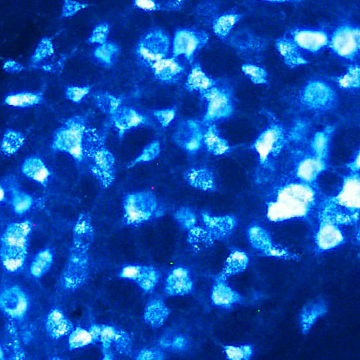Research Project

Michael Green
Current Appointments
Senior Research Facility ManagerKey Research Areas
Professional Background Dr. Michael Green brings over 20 years of expertise in MRI Research to his role at NeuRA Imaging, where he facilitates and directly engages in research using the Philips 3T scanner. His extensive experience includes MRI research into muscle damage post-exercise, the stiffness properties of brain tissue, Williams Syndrome, sleep apnea biomarkers, insomnia and alcohol-related brain changes. Dr.Green is also an active member of NeuRA's Research Quality committee, with a special interest in MRI reproducibility and research quality.
Education and Previous Experience Michael Green holds a PhD in Physics from Flinders University in Adelaide and completed a post-doctoral position in laser physics at Williams College in Massachusetts, USA. His current areas of expertise encompass MRI diffusion acquisition and analysis, quantitative imaging such as susceptibility-weighted imaging (SWI) and T1/T2 imaging. He has optimized imaging protocols to ensure reliable, high-quality scans and has conducted internal workshops on MRI data access and analysis. He is proficient in MRI analysis software including Freesurfer, FSL, MRTrix, SynthSeg, QSMxT, XNAT, Calpendo, and Matlab.
Responsibilities at NeuRA Imaging As a National Imaging Facility Fellow, Dr. Green guides researchers in acquiring and analyzing high-quality MRI scans from NeuRA Imaging’s Philips 3T Ingenia MRI scanner to answer complex scientific questions. He manages research projects, ensuring researchers have quick and easy access to their scans via NeuRA's XNAT imaging server, oversees approved project applications, and runs the MRI Safety program to ensure all researchers are certified and have safe access to the MRI space.
Academic and Professional Contributions Additionally, Dr. Green holds a conjoint lecturer position with the UNSW School of Clinical Medicine, Faculty of Medicine and Health, and manages the NeuRA Imaging website. He has previously chaired the National Imaging Facility's Human Imaging Theme group, supervised Honours and PhD students, , and served on the Research Volunteer and OHS Committees.
Publications
2022 Oct
Neuroanatomical correlates of social approach in Williams Syndrome and down syndrome
View full journal-article on http://dx.doi.org/10.1016/j.neuropsychologia.2022.108366
2022 Sep
Quality Output Checklist and Content Assessment (QuOCCA): a new tool for assessing research quality and reproducibility
View full journal-article on http://dx.doi.org/10.1136/bmjopen-2022-060976
2022 Apr
Brain mitochondrial dysfunction and driving simulator performance in untreated obstructive sleep apnea
View full journal-article on https://doi.org/10.1111/jsr.13482
2017
An Objective Short Sleep Insomnia Disorder Subtype Is Associated With Reduced Brain Metabolite Concentrations In Vivo: A Preliminary Magnetic Resonance Spectroscopy Assessment
View full journal-article on http://gateway.webofknowledge.com/gateway/Gateway.cgi?GWVersion=2&SrcAuth=ORCID&SrcApp=OrcidOrg&DestLinkType=FullRecord&DestApp=WOS_CPL&KeyUT=WOS:000417043000008&KeyUID=WOS:000417043000008
2017
Erratum to: White matter measures are near normal in controlled HIV infection except in those with cognitive impairment and longer HIV duration.
2017
White matter measures are near normal in controlled HIV infection except in those with cognitive impairment and longer HIV duration
2013
Diffusion tensor imaging enhanced anisotropic MRE of the brain
2013
Measuring anisotropic muscle stiffness properties using elastography
2012
Combining MR elastography and diffusion tensor imaging for the assessment of anisotropic mechanical properties: A phantom study
2012
Combining rheometry and elastography to understand large deformation soft tissue properties

